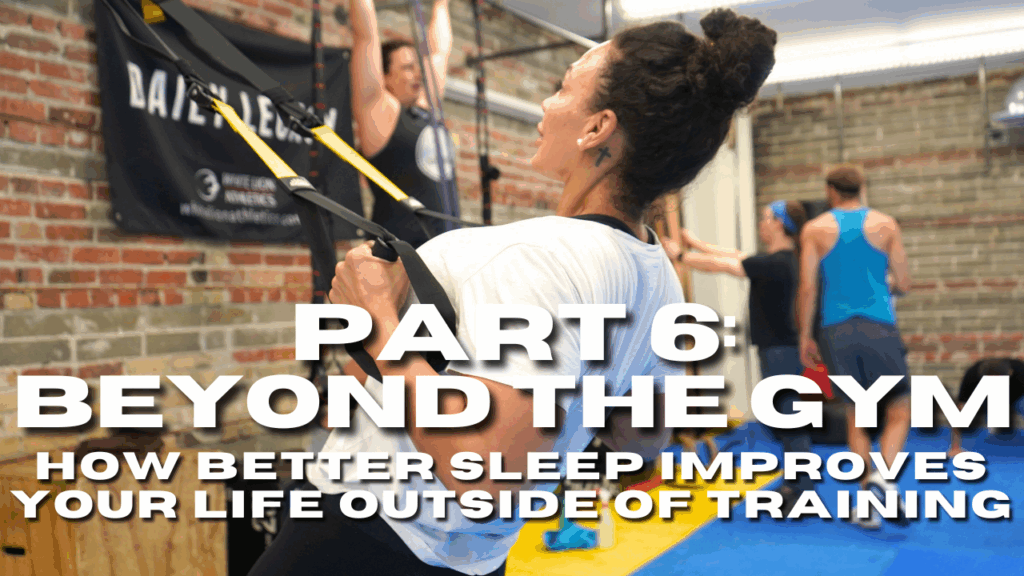
It’s not just your lifts that suffer when sleep is off — your daily life, relationships, work performance, and emotional resilience take a hit too. Sleep affects more than muscle and recovery; it’s the foundation for your overall well-being.
Emotional Regulation and Social Strength
Ever snapped at someone after a bad night’s sleep? That’s not just irritability — it’s neurochemical imbalance. Sleep helps regulate the brain’s emotional centers, especially the amygdala and prefrontal cortex. Without enough rest, your ability to control impulses, manage frustration, and maintain empathy drops significantly (Yoo et al., 2007).
A chronic sleep deficit can lead to:
- Increased conflict in relationships
- Poor emotional control at work or home
- Decreased ability to handle stress or criticism
For those balancing jobs, families, and training schedules, sleep is what helps you show up as your best self.
Work Performance and Cognitive Sharpness
Think of sleep as the ultimate productivity hack. Studies show that insufficient sleep reduces processing speed, memory retention, creativity, and concentration (Lim & Dinges, 2010). In other words, your work — whether it’s meetings, spreadsheets, coaching clients, or problem solving — becomes harder and slower when you’re tired.
Even more critical? Sleep debt builds up over time. If you’re consistently getting less than 6 hours per night, you may not even notice how much your performance has declined — because it feels normal.
Immune Function and Long-Term Health
Good sleep isn’t just about feeling alert — it’s about staying healthy. Chronic sleep deprivation weakens the immune system, increases systemic inflammation, and raises the risk of:
- Cardiovascular disease
- Type 2 diabetes
- Obesity
- Depression and anxiety
Research from the National Sleep Foundation has consistently shown that those who get less than 7 hours per night are more likely to report poor overall health and frequent illness.
Real Talk from the Gym Floor
You train to be strong — not just in the gym, but for life. Picking up your kids, making clear-headed decisions under stress, staying calm in traffic, leading at work — these all demand physical and emotional energy. Training builds resilience, but sleep is what sustains it.
Takeaways for White Lion Strong Members
- Sleep supports every part of your life, not just your workouts.
- Prioritize sleep to become a better athlete, parent, partner, and professional.
- View rest as part of your performance plan — whether it’s in the gym, the office, or at home.
References
Yoo, S. S., Gujar, N., Hu, P., Jolesz, F. A., & Walker, M. P. (2007). The human emotional brain without sleep — a prefrontal amygdala disconnect. Current Biology, 17(20), R877-R878. https://doi.org/10.1016/j.cub.2007.08.007
Lim, J., & Dinges, D. F. (2010). A meta-analysis of the impact of short-term sleep deprivation on cognitive variables. Psychological Bulletin, 136(3), 375–389. https://doi.org/10.1037/a0018883